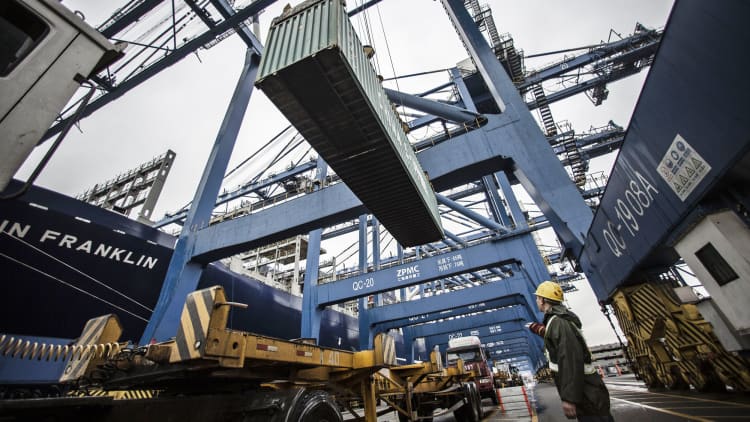
The Trump administration has taken issue with what it has deemed intellectual property theft by China, but the tussle over those rights could be rendered inconsequential with time.
Trade policies in China that have come under increased scrutiny of late — amid an elevation in U.S.-China trade tensions — include its practice of requiring foreign firms to hand over technological expertise in order to access local markets.
But those concerns could eventually lessen as Chinese firms producing their own technology recognize the significance of intellectual property laws.

"The amount of IP being generated by the Chinese companies is also on the rise, so I think over time, it's going to be a non-issue, because the Chinese will also very much want to manage and support those" laws, John Chen, chief executive officer of BlackBerry, told CNBC's "Street Signs."
"There's so many tech companies being created here and some of them are giants, like the Alibabas and the Baidus of the world and the Tencents of the world, and they generate a lot of IP, and they want to protect that too," Chen said at the Boao Forum for Asia in Hainan Province, China.
Policies 'coerce' American companies
Still, those changes will likely take time, because there is still "a big gap" when it comes to intellectual property laws between the United States and China, he added.
President Donald Trump briefly addressed the issue in an optimistic tweet on Sunday, writing that a deal on intellectual property would be struck between the U.S. and China. He did not elaborate further.
Earlier this month, Trump unveiled a list of Chinese imports, including high-tech products used in robotics and in other industries, that could be slapped with additional tariffs.
The Office of the U.S. Trade Representative said in a statement that the proposal was made in response to China's policies that "coerce American companies into transferring their technology and intellectual property to domestic Chinese enterprises."
Fears have simmered in recent weeks that the world's two largest economies could engage in a trade war.
— CNBC's Huileng Tan contributed to this report.

